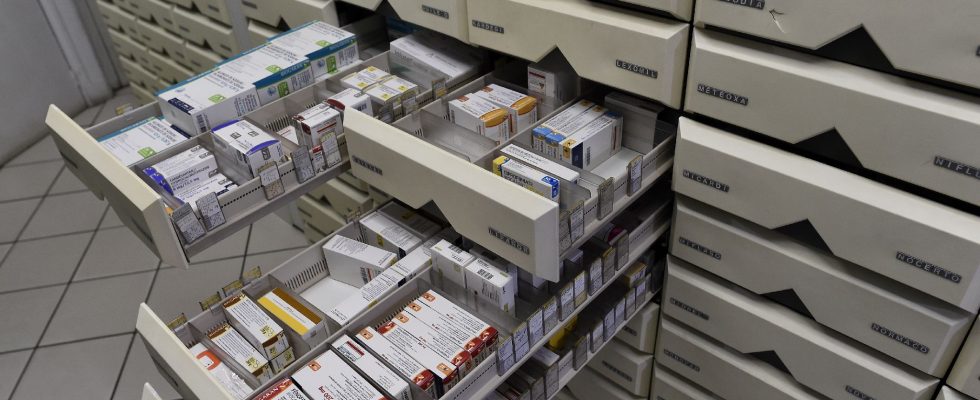Faced with drug shortages, an interministerial mission launched by Matignon in January calls on Tuesday August 29 for a “New Deal” for the entire chain, from manufacturers to patients, including an overhaul of the regulatory system, “commitments” from manufacturers or a “better control of volumes”.
Elisabeth Borne had in January charged “six qualified personalities” with a mission on the “regulation” and “financing of health products”, in a context of growing shortages of drugs, some of which are widely used such as pediatric versions of paracetamol or amoxicillin.
Among their objectives were also the “sustainability of expenditure”, the “relocation of strategic health products”, or even “the attractiveness of the territory”. “The reconciliation of health, industrial, ecological and financial objectives requires a New Deal with all the actors”, writes the mission in a report submitted to the government on Tuesday. This formulates “about fifty” recommendations. Some “have already begun to serve as a basis for the preparation […] of the social security financing bill (PLFSS) for 2024”, write in a joint press release the ministers concerned, Aurélien Rousseau (Health), Roland Lescure (Industry) and Thomas Cazenave (Public Accounts).
They would make it possible to “better control volumes, for example by increasing the use of rapid diagnostic orientation tests (TROD), to actively develop the use of biosimilars (the equivalent of a generic drug but for treatments of biological origin , editor’s note) or to facilitate applications for registration of innovative acts by manufacturers with the High Authority for Health”, underline the ministers.
“Actively develop the use of generics”
Among other proposals, the mission recommends “reviewing” the so-called safeguard clause, a tax demanded from pharmaceutical groups in the event of excesses in drug consumption expenditure, with overall amounts that are too high in its opinion. At the same time, it pleads for “industrial commitments”, particularly in terms of supply and investment.
The authors make various proposals to “actively develop the use of generic drugs to quickly generate new financial leeway”. They call for “working on volumes”, suggesting in particular “sensitization” of patients on “drug sobriety”, the development of “prescription assistance software”, or preventive measures. They make several proposals to “evolve” the methods of setting prices. The mission, on the other hand, says that it has “worked little” on measures “involving an increase in the remainder payable by patients”, because “attached to the principles of access to health care for all”.
